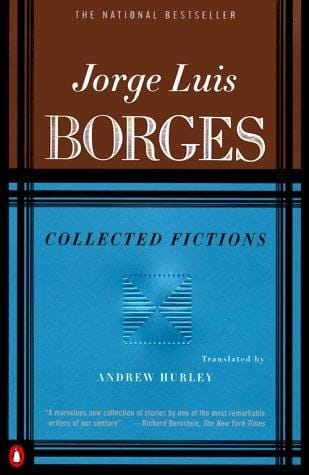The Flavors of Language
It's easier to see one's second language more clearly than the first
I can count on my fingers the books that have given me a feeling of intellectual dizziness: that euphoria, or vertigo, that comes from being unmoored from reality.
One of these I read in college.
At the time I was renting a room in a 19th century historic wooden home in a neighborhood of historic wooden homes.
This may or may not be the house. I’ve forgotten the exact address.
I mention this building material—old, dry, wood—because one part of the memory that jumps out now is the sensation of candlelight.
Lots and lots of hot, burning, flickering candles.
This was the (dark) winter when I decided to light my room with fire instead of bulbs.
At age 20, it never crossed my mind that this might, perhaps, be a dumb idea in a house that was highly inflammable.
(As a landlord myself now, a lesson here: beware renting to people like me.)
I remember the soft cover of that book, the rough-cut pages, and the sublime feeling of having my mind twisted and then suddenly released, with a giddy rush, in the last few words of one of its stories.
That was “The Garden of Forking Paths” by Jorge Luis Borges.
From that time on, Borges has always loomed in my mind as a magician of language of the highest order.
(I won’t quote that story here because I have since avoided going back to it, much as I refrain from listening to late Beethoven to avoid dulling its power.)
This week, I had the great pleasure of sharing with people an interview with Borges where he explains in detail his reasons for admiring the English language.
He learned English at a young age, with an English grandmother and a British nanny .
Even so, his perspective on the language has the clarity of one who sees it from outside.
A monoglot native speaker cannot identify the distinct qualities of a language, just as a fish cannot comment on the water it swims in.
On Twitter, I was delighted to see many people sharing personal responses to Borges that echoed, elaborated, or in some cases (surprisingly few, I thought) disagreed with him.
A few noted that Ottoman Turkish had even more subtly distinct registers in its lexis than English, due to its multiple influences of Persian, Arabic, and Turkish.
Others observed that Asian languages such as Korean also have a range of earthy and abstract synonyms, thanks to the historic literary influence of Chinese.
The Cutting Quickness of 中文
In my case, I would describe English differently, because the language I know best to compare it to is modern Chinese.
I learned Mandarin out of the classroom while living in Hong Kong and Beijing for nearly seven years. (My other languages, following at some distance, are French, Spanish, an etiolated German, and nugatory Japanese.)
Chinese has an earthiness, a directness, and an extreme economy that makes English feel elaborate. It dispenses with fluff and artifice, and has a pleasurable rhythm and music.
(Excepting the language of Chinese Communist Party propaganda, with its ritual formulas and ponderous, empty cliches.)
My use of it these days is mainly as a code with my wife when we need to communicate privately.
Whether you speak another language well or poorly, indulge yourself this weekend in refreshing yourself a little in the words of an alternative mental universe that every language contains.
Take pleasure in the language like a cuisine
With that in mind, here’s one line I’d like to share.
It’s in Classical Chinese (as different from modern Chinese as Latin is from a Romance language), and comes from the stories of Zhuangzi.
If you haven’t read them, do yourself a favor and look them up.
Zhuangzi wrote a set of philosophical stories that are spiritual brothers of Borges’, but 2,200 years more ancient.
Here is the most famous image of his stories: Zhuangzi’s dream about being a butterfly:
不知周之夢為胡蝶與,胡蝶之夢為周與。
Below is the whole story, with the line above in bold.
Once Zhuang Zhou dreamt he was a butterfly, a butterfly flitting and fluttering around, happy with himself and doing as he pleased. He didn't know he was Zhuang Zhou. Suddenly, he woke up and there he was, solid and unmistakable Zhuang Zhou. But he didn't know if he was Zhuang Zhou who had dreamt he was a butterfly, or a butterfly dreaming he was Zhuang Zhou. Between Zhuang Zhou and a butterfly there must be some distinction. This is called the Transformation of Things.
Are you mere matter dreaming you’re a person? Or a person dreaming you are mere matter?
What I’m Working On
Next week, I’ll be teaching a lesson on building networks with influential people in the course Create, Publish, Profit.
The other thing my family is “working” on is preparing for our twin boys’ first birthday.
The true clocks of life are growing children.
Hope you’re having a great spring.
Until the next time,
Ben
PS - Thank you VERY MUCH to paid subscribers who now support this newsletter. At this point I am continuing to provide all my writing for free, but it would not be possible without your generosity. I have some ideas for something special just for you —about which more to come soon.








I'm adding your quote "Take pleasure in language like a cuisine." to my list of revolving inspirational sayings. Thank you.
Fun piece. As an English-speaking monoglot, I have no real-life experience with what Borges mentions here, but I have been a professional editor for more than two decades now and have read about the history of English for years. I’m always amazed by the richness of its expressive potential, which it owes in part to its wild, miscegenated past.